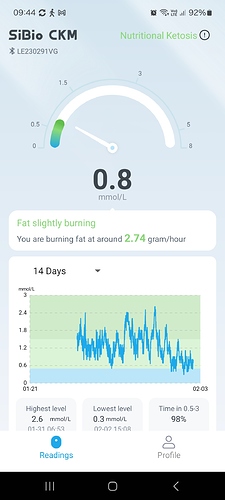Hello,
I’m new here, I had metabolic syndrome (115kg at 190cm). At one point I had 1600 triglycerides, where the lab even tried to contact my dr. Well it was a wakeup call, I went low carb and exercised more as far as I could, as I had orthopedic problems, which made movement difficult, which certainly fed into the overall problem.
Anyway, after 2 years I lost quite a bit (at best 98kg), values got better too. After holidays I gained some back again (104kg), but overall I was still lighter than my start couple of years ago.I felt that sugar became a problem again (cravings not under control), I wanted to go all keto for once, and see how it works for me. So far so good. I started 5 weeks ago, I feel the benefits like everybody else, the weight too, got from 104kg to 94kg within those 5 weeks. I don’t think I am in caloric deficit, as I eat as much as I feel like.
Here is now the part of interest. I know we shouldn’t get obsessed with numbers, but maybe others a looking into it too. So I wore a CKM the last 7 days. It might be interesting for others too see how ketones fluctuate throughout the day. What caught my attentions is that the last 2 days may ketones dropped, even though I eat the same stuff as usual (nearly no carbs).
My conclusions is I start getting adapted after 5 weeks already? Anyways I’m not worried as I feel good, and everything works fine, this is just for educational purpose.





